Vegetarian’s Guide: How to Store Plant-Based Protein in the Fridge the Right Way
For vegetarians, plant-based proteins are the heart of a healthy diet. From tofu and tempeh to lentils and plant-based meat alternatives, these nutrient-packed foods keep you energized and satisfied. However, improper storage can lead to spoilage, nutrient loss, or even contamination — all of which can compromise your meals and health. That’s why knowing how to store plant-based protein correctly in your fridge is essential.
In this guide, we’ll explore the best ways to keep your plant proteins fresh, safe, and delicious — and how the SMAD Gas Fridge can make that task even easier.
1. Understand the Nature of Plant-Based Proteins
Unlike animal proteins, most plant-based proteins are high in moisture and sometimes lack natural preservatives. Foods like tofu, fresh legumes, and veggie patties are prone to bacterial growth if not stored at the right temperature. Even dry beans and lentils, once cooked, can spoil quickly if they are not chilled promptly.
Key tip: Aim to keep plant-based proteins at a stable temperature of 0–4°C (32–39°F) to slow down bacterial growth.
2. Keep Your Fridge Organized
One of the biggest mistakes people make is placing all plant-based proteins together without considering cross-contamination or airflow.
Upper shelves: Ideal for ready-to-eat items such as cooked lentils, hummus, or marinated tofu.
Middle shelves: Store sealed packages of plant-based meat alternatives or tempeh here for even, stable cooling.
Lower shelves: Keep raw or uncooked plant protein ingredients, like firm tofu blocks or bean sprouts, in this colder section.
Crisper drawer: While typically used for vegetables, you can store fresh herbs or leafy greens used in your plant-protein dishes here — but avoid mixing with unwashed produce.

3. Use Proper Containers
Air exposure accelerates spoilage and changes the texture of plant-based proteins. To maintain freshness:
Store cooked proteins in airtight glass or BPA-free plastic containers.
Keep tofu submerged in fresh, clean water and change the water daily.
Wrap plant-based deli slices in wax paper or reusable wraps before placing them in an airtight container to avoid moisture buildup.
4. Label and Track Storage Dates
Even in a perfectly chilled fridge, plant proteins have a limited shelf life. Label each container with the date of storage so you can use older items first. As a general guideline:
Cooked beans/lentils: 3–5 days
Tofu (opened): 3–4 days
Tempeh: Up to 10 days if unopened; 3–5 days after opening
Plant-based meat alternatives: Follow package instructions — typically 5–7 days after opening
5. Avoid Cross-Contamination
If you share your fridge with non-vegetarians, be extra cautious. Keep your plant proteins on separate shelves or in clearly labeled containers to avoid contact with raw meat or fish juices. Using storage bins or drawers specifically for vegetarian foods is a simple and effective safeguard.

6. How the SMAD Gas Fridge Helps
For vegetarians who travel, camp, or live in areas with unreliable electricity, the SMAD Gas Fridge offers a reliable way to keep plant-based proteins fresh. Its absorption cooling system runs quietly and can operate on LPG gas, 12V, or 110V/220V electric power. This flexibility ensures that whether you’re on the road in your RV or living off-grid, your tofu, hummus, and veggie burgers stay at the perfect temperature. Plus, its spacious interior and adjustable shelving make it easy to organize your plant proteins for maximum freshness.
7. Quick Checklist for Storing Plant Proteins
✅ Maintain fridge temperature at 0–4°C (32–39°F)
✅ Use airtight containers to prevent moisture loss or odor transfer
✅ Store cooked and ready-to-eat foods higher up; raw items lower down
✅ Change tofu water daily for freshness
✅ Keep a storage date label on all items
✅ Separate plant proteins from any animal-based foods in shared fridges
Final Thoughts
Proper storage of plant-based protein is more than just a matter of convenience — it’s about preserving flavor, texture, and nutrition while keeping your food safe. With the right organization, container choices, and temperature control, your fridge can become a haven for vegetarian ingredients. And if you need a reliable appliance to make it even easier, the SMAD Gas Fridge is a versatile, energy-efficient choice for keeping your plant-based proteins in peak condition, no matter where life takes you.

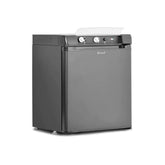

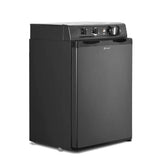
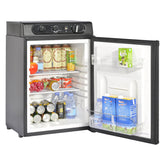
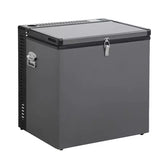
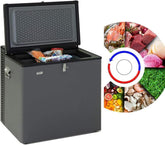
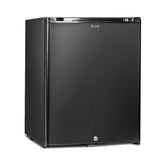
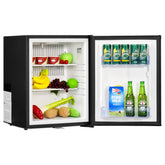
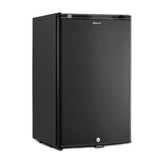
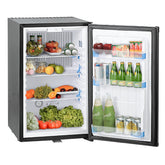
Reactie plaatsen
Let op: opmerkingen moeten worden goedgekeurd voordat ze worden gepubliceerd.